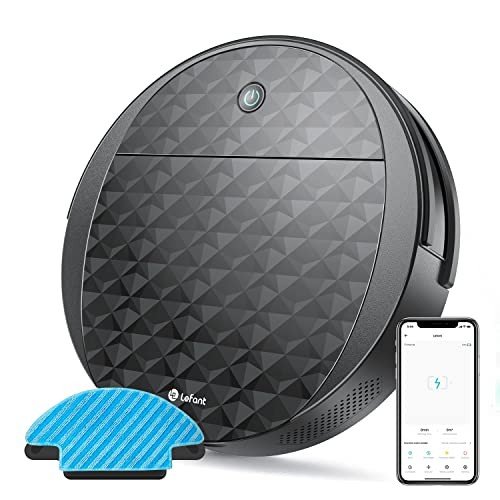The Rise of Autonomous Vacuums: Revolutionizing Home Cleaning
In the age of technology, home tasks are ending up being significantly automated, and among the most significant advancements in this world is the autonomous vacuum. These smart cleaning robotics are developed to reduce the drudgery of standard vacuuming, making them popular among time-strapped families. This post checks out the development, performance, advantages, and restrictions of autonomous vacuums, in addition to a comparison of some of the leading models on the market today.
What is an Autonomous Vacuum?
An autonomous vacuum, likewise referred to as a robotic vacuum cleaner, is a small, automatic gadget that browses through your home to clean floorings without human intervention. Geared up with sensors, cameras, and advanced software application, these vacuums can detect challenges, avoid stairs, and optimize cleaning paths. They normally operate from a rechargeable battery, returning to their charging stations when their power is low or when cleaning jobs are finished.
Secret Features of Autonomous Vacuums
Smart Navigation:
- Utilizes sensing units and algorithms to map the environment.
- Can browse intricate designs and prevent challenges.
Scheduling:
- Allows users to set cleaning times.
- Can run when your house is empty, guaranteeing very little disturbance.
Connection:
- Many models link to Wi-Fi, permitting app control and integration with smart home systems.
- Users can personalize settings, check cleaning status, and receive alerts through mobile applications.
Suction Power:
- Varies between models; some deal adjustable suction settings for various floor types.
- High-end models include powerful suction capable of getting animal hair and deep dirt.
Floor Type Adaptability:
- Capable of cleaning carpets, wood, tiles, and more.
- Specific designs concentrate on tailored cleaning for multiple surface areas.
The Advantages of Using Autonomous Vacuums
1. Time-Saving
One of the most substantial advantages of autonomous vacuums is the amount of time they save. Instead of spending hours pressing a standard vacuum, house owners can set robotic vacuums to clean while they are taken part in other activities.
2. Consistent Cleaning Schedule
With the capability to set up cleansings, these vacuums make sure that spaces are routinely tidied up, leading to a cleaner home in general. Regular cleaning assists maintain indoor air quality, particularly for families with allergic reactions or asthma.
3. Smart Home Integration
Numerous autonomous vacuums can be incorporated with smart home systems for smooth operation. Homeowners can manage their vacuums via voice commands through gadgets like Amazon Alexa or Google Assistant, enhancing user benefit.
4. Compact Design
The slim profile of these devices enables them to clean under furnishings, such as couches and beds, where standard vacuums typically can not reach.
5. Pet-Friendly
For pet owners, autonomous vacuums can be a game-changer, as they are often geared up with specialized features for getting animal hair and dander, adding to a cleaner home environment.
Limitations of Autonomous Vacuums
In spite of their lots of advantages, autonomous vacuums also have constraints:
1. Limited Deep Cleaning
While these vacuums efficiently preserve cleanliness, they may not change the efficiency of a deep tidy supplied by conventional vacuums, especially for heavily stained areas.
2. Capability Constraints
The majority of autonomous vacuums included little dust bins that require to be emptied regularly, particularly in bigger homes or homes with animals. This can be a hassle for some users.
3. Navigation Challenges
Although navigation innovation is continuously improving, some models might deal with particular designs, especially intricate spaces with numerous barriers or extremely small spaces.
4. Price Point
While prices have actually become more available, high-end models can still be quite pricey, positioning a barrier for some customers.
Comparison of Top Autonomous Vacuum Models
| Design | Smart Features | Battery Life | Suction Strength | Cost Range |
|---|---|---|---|---|
| iRobot Roomba 980 | App Control, Voice Assistant | 120 minutes | 1700 Pa | ₤ 700 - ₤ 900 |
| Roborock S6 MaxV | Advanced Mapping, Connectable | 180 minutes | 2500 Pa | ₤ 600 - ₤ 800 |
| Ecovacs Deebot Ozmo | Mopping, Smart Home | 110 minutes | 1500 Pa | ₤ 450 - ₤ 700 |
| Neato Botvac D7 | Laser Navigation, Custom Zones | 120 minutes | 2000 Pa | ₤ 800 - ₤ 900 |
| Shark IQ Robot | Self-Emptying Base, Smart Map | 90 minutes | 1500 Pa | ₤ 400 - ₤ 600 |
Significant Takeaways
- Smart Features: Consumers ought to prioritize designs offering robust clever features for benefit and performance.
- Battery Life: A longer battery life is useful for bigger home.
- Suction Strength: Depending on family needs, varying suction power can substantially impact cleaning performance.
FAQs about Autonomous Vacuums
Q1: How do I maintain my autonomous vacuum?
A: Regular maintenance consists of cleaning the brushes, emptying the dustbin, and looking for blockages. Additionally, keeping the sensing units clean will assist keep navigation accuracy.
Q2: Can robotic vacuums tidy rugs and carpets?
A: Yes, many robotic vacuums are designed to efficiently clean both difficult surface areas and carpets. However, More Support might vary based on the model.
Q3: Do robotic vacuums need Wi-Fi?
A: While many autonomous vacuums gain from Wi-Fi connection for app control and updates, some models can operate separately without a wireless connection.
Q4: How frequently should I run my robotic vacuum?
A: It depends upon your living circumstance, but running it numerous times a week is typically recommended, especially for homes with pets.
In conclusion, autonomous vacuums represent a considerable improvement in home cleaning innovation, appealing benefit and effectiveness. While these gadgets might not completely change traditional vacuum, they are unquestionably practical in keeping a tidy living environment. As technology continues to evolve, the future of home cleaning looks promising, and these gadgets are at the leading edge of the transformation.

